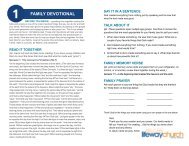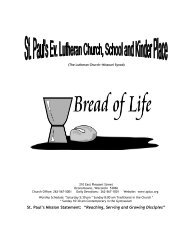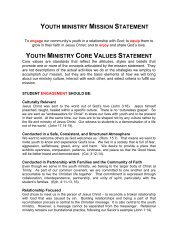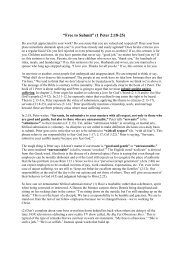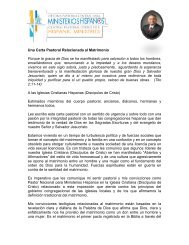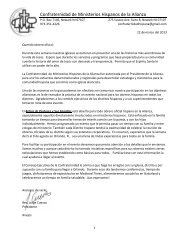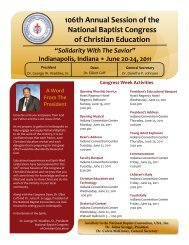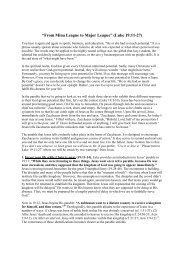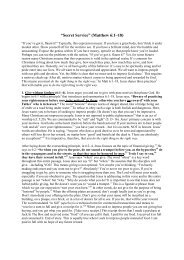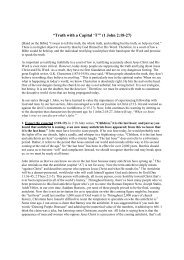A Proposal to Reduce Unnecessary Divorce - Razorplanet
A Proposal to Reduce Unnecessary Divorce - Razorplanet
A Proposal to Reduce Unnecessary Divorce - Razorplanet
Create successful ePaper yourself
Turn your PDF publications into a flip-book with our unique Google optimized e-Paper software.
14<br />
These costs arise from increased taxpayer expenditures for antipoverty, criminal<br />
justice, and education programs, and through lower levels of taxes paid by<br />
individuals who, as adults, earn less because of reduced opportunities as a result<br />
of having been more likely <strong>to</strong> grow up in poverty. If, as research suggests<br />
is likely, marriage has additional benefits <strong>to</strong> children, adults, and communities,<br />
and if those benefits are in areas other than increased income levels, then the<br />
actual taxpayer costs of divorce and unwed childbearing are likely much higher.<br />
The researchers adopted the simplifying and extremely cautious assumption<br />
that all of the taxpayer costs of divorce and unmarried childbearing stem from<br />
the effects that family fragmentation has on poverty, a causal mechanism that is<br />
well-accepted and has been reasonably well-quantified in the literature.<br />
Another study focusing solely on divorce estimated that divorces in the year<br />
2001 cost state and federal governments about $33 billion. An average divorce<br />
in 2001 cost taxpayers over $30,000, based on fac<strong>to</strong>rs such as higher use of food<br />
stamps and public housing along with increased rates of bankruptcies and juvenile<br />
delinquency. The public cost per household was $312. These figures did<br />
not include additional expenses in areas such as health care and incarceration. 10<br />
The clear implication from emerging research is that even very small increases<br />
in stable marriage rates would result in significant savings for taxpayers.<br />
MANY DIVORCES MAY BE PREVENTABLE<br />
According <strong>to</strong> conventional wisdom, when a couple files for divorce, that marriage<br />
is essentially over.<br />
But we now know that this conventional wisdom just ain’t so.<br />
New research shows that about 40 percent of U.S. couples already well in<strong>to</strong><br />
the divorce process say that one or both of them are interested in the possibility<br />
of reconciliation. 11<br />
This finding is stunning. It tells us that we have a major new opportunity <strong>to</strong><br />
help millions of American families and <strong>to</strong> strengthen our society.<br />
Let us tell you a bit more about this important concept.



